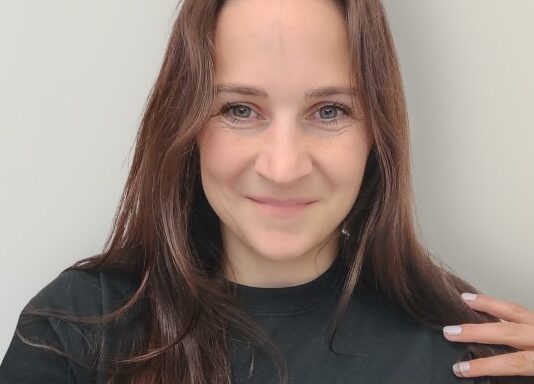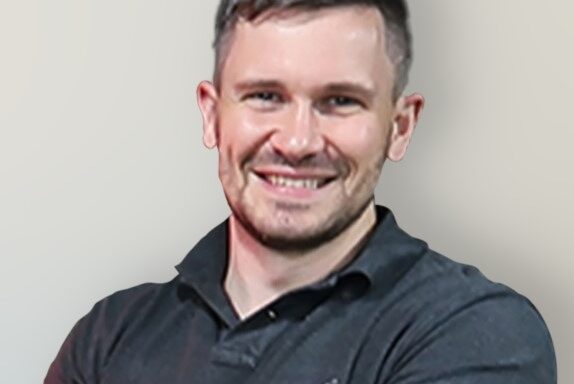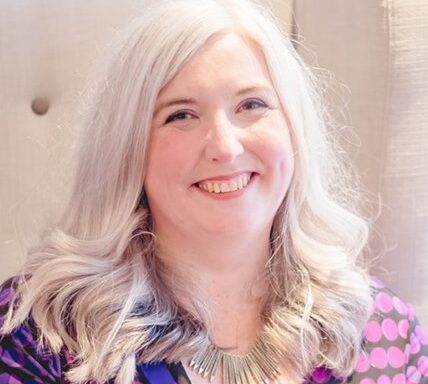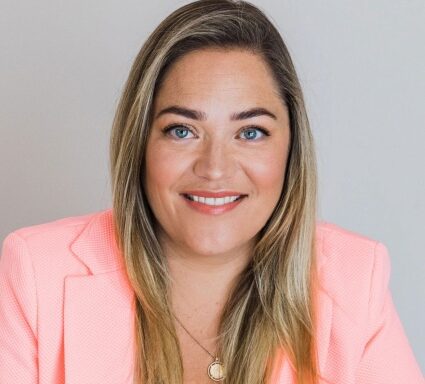Making your first £1m doesn’t matter
The co-founder of Mazuma talks about why chasing your first million pounds isn’t what you really want to do – and what you actually want instead.
Got ambitions of making your first million pounds?
Lucy Cohen is here to tell you that you should forget that – there’s probably something else you’d like to achieve.
The co-founder of Mazuma joins Entrepreneurial Accountant host Mike Psaras to talk about her new book, overcoming challenges and seeing opportunities during the pandemic, and why money isn’t always what we’re looking for.
Here’s what they cover:
- You don’t really want millions, you want something else
- Forget the rise and grind mentality – and no 5am wake ups
- How the pandemic has changed what we want
- Finding your reason for being
You don’t really want millions, you want something else
Mike Psaras
Hi, and welcome to the Entrepreneurial Accountant. Today we have podcast royalty, author and accountant, it’s none other than Lucy Cohen, co-Founder of Mazuma. Hi, Lucy, welcome to the show.
Lucy Cohen
Hi, Mike, nice to see you.
Mike Psaras
We touched on it a little bit, but you’ve got it in the background, your first book, Forget The First Million. Congratulations for getting the first book sorted.
Lucy Cohen
Thank you, yeah.
Mike Psaras
Tell us about it.
Lucy Cohen
Yes, so it’s really a book I started writing it before the pandemic, and then the pandemic happened, and it stole all of my creativity.
So I find it very hard to write and be creative when you’re, well, I mean, creativity requires a bit of bandwidth and space.
And while you’re firefighting during a global plague, it’s hard to be creative.
So I came back to it towards the second half of last year, and all it’s about building a life that works for you.
There are so many business books, and for a lot of them, they take one idea and they spread it out over 300 pages.
And a lot of them are about, “Yeah, you can do it,” and, “Yeah, woo, make a million,” and, “How to get to seven figures in three weeks,” or, “This is how I built my multimillion dollar empire in two minutes,” or whatever, and there’s just a load of that nonsense out there.
I think it I talk in there about when I started my business. Dragons’ Den was really popular, and it was all about, what’s your growth? What’s your acceleration? What’s your business valued at?
All this kind of stuff, and it kind of breeds this very unhealthy attitude to what running a business can really look.
There’s been a lot of talk over the last couple of years about mental health. I’m very honest about my own mental health, and I just think that that rampant growth focus can be really damaging.
Now, look, I’ve always said we’re a high-growth company. We are, but not at the expense of my sanity – and it’s doing it in a way that’s measured.
So the book’s about understanding that when people say things will be better when this time next year, we’ll be millionaires, or if I had a million pounds, my life would be fixed.
Actually, you already have all the tools in your life to lead the life you want to lead. Or if you don’t have them right now, they’re really a lot more attainable and closer to you than you think they are.
You don’t need it, you don’t want a million pounds.
What you want is freedom and financial freedom. And that means not worrying about bills. That means within reason having the things you want.
I mean, look, if you want to have a private jet, and spend a million pounds on Cartier jewellery, maybe you do need to earn a couple of million quid.
But if you actually want what most people want, which is a nice, relatively stress-free life with financial freedom, it doesn’t take a million pounds to do that.
It just requires you to shift your focus a little bit in how you run your business, and that’s what it’s about really.
It’s kind of like that. It’s sense checking that top line, you know.
It’s an expansion of turnovers, vanity and profit, sanity, and all that kind of stuff. It’s really talking about you don’t need gazillions in the bank to lead a meaningful, purposeful and happy life.
Mike Psaras
Yeah, I think that’s amazing.
And it’s spot on, because I think it’s very easy to kind of, like, get wrapped up in being an entrepreneur and hustle mentality.
And before you know it, you’ve fallen down this rabbit hole and as you say, the mental health side of it just gets left to the side.
And you’re striving to achieve all these things that people tell you that you should be doing.
As you said, like, the nonsense business books that kind of say, “Oh you should be like, come on, you’re going to make, like, X million, and this is how you grow, and this is how you scale.”
It doesn’t say anywhere anything about how to just, kind of, be yourself, you know?
Forget the rise and grind mentality – and no 5am wake ups
Lucy Cohen
I’ve got a rule that if I ever see an entrepreneur put up a meme that says rise and grind, I unfollow them.
I’m like, I don’t need that in my life.
Mike Psaras
That’s a good rule.
Lucy Cohen
I’m not in The 5am Club. No way.
Mike Psaras
No, exactly, I mean, but you say that, but you still have managed to do a lot of different things despite not being in The 5am Club.
I suppose what people say now is it’s not about the amount of time you have, or the amount of hours in the day.
It’s what you choose to focus on, and you’re an amazing example of that, I think, given everything that you’ve achieved so far.
Lucy Cohen
Thanks.
How the pandemic has changed what we want
Mike Psaras
I was going to ask you two questions, around the book, and you’ve given us a lot of information so far. But one of the things was, it’s a question I’ve asked myself, maybe not so much for older business owners, but younger business owners.
Do you think we’re in an era or a time of that post-profit maximisation, where people aren’t just thinking about how much money I can make approach to the business rather than just, like, “Money, money, money”? Do you see that?
Lucy Cohen
Absolutely, absolutely and actually, I see it across all generations.
I think, and again, the last two years I think have really accelerated this, this change in people’s perceptions, even if you just look about the location of where people work.
I haven’t got a single job that we advertise at the moment where people aren’t going, “Can I work from home?”
Because let’s face it, why do you need to go into an office?
Now, there’s arguments for and against, and I think a little bit of contact time in the office and team learning and informal learning, and that sort of thing is very valuable.
But in terms of doing, do I need somebody to sit at a desk nine to five?
No, of course I don’t.
I just need them to do their job, and I don’t really care how they slice that up, as long as it’s done, and our clients are happy, and they’re happy.
So yeah, I think the pandemic’s accelerated it.
Let’s face it, people lost things and family and people and loved ones and jobs and opportunities during something that was completely out of their control.
I think it really highlights the kind of – whatever deity you may not believe in, but taking God in the kind of holistic term, there by the grace of God, good you.
You know, you’re lucky to be here.
You’ve got one life, and you have a duty to, I think – well, you don’t have a duty to, but you probably want to live as happy a life as you possibly can.
In the uncertain time that you have, why would you become a slave to your job? Why would you create something for yourself that makes you miserable?
Create happiness, and then the money will follow it in the way that you want to.
So yeah, I think the pandemic and the events, the current affairs going on in the world at the moment, it really makes people re-evaluate and think “what do I want out of my life?”
Do I want to work for the same employer for 40 years on a nine to five with a fixed pension plan, and then retirement’s retirement?
Or do I want to lead a kind of interesting, meaningful, purposeful life that looks different to what I might have thought of when I was in sixth form or something?
And that’s fine.
So yeah, I think there’s definitely a shift in how people see the world and how people see their place in the world.
But people also are much more interested in doing something with a social conscience, doing something that contributes to society that kind of fills that part of their life as well, gives them fulfilment in that sense.
And that’s something we’ve seen a lot of a trend towards now as well, people kind of, you know, setting up community interest companies.
Not for profits, they’re much more prevalent than they used to be at micro level, and I think that’s really exciting, actually.
Finding your reason for being
Mike Psaras
It is exciting, and it ties into this thing that, like, I’ve seen pop around a few times.
I must confess, I don’t know too much about it, but it’s this concept, a Japanese concept called Ikigai, and I don’t know if you came across it when you were of reading.
Lucy Cohen
I have heard about it.
Mike Psaras
I’ve just pulled it up on my screen now, just to tell you, like, just to explain what it is.
It’s like four circles, I don’t know if you’ve seen it, but it’s sort of, like, the four circles are like a Venn diagram and they overlap
They say what you love, what the world needs, what you can be paid for, and what you’re good at.
And then they all like overlap to show the combination of each one is your passion, your mission, your profession, or your vocation. Right in the middle is Ikigai, which is your reason for being.
Lucy Cohen
Yeah.
Mike Psaras
And it’s kind of like what you’re saying, from what we’ve experienced collectively over the past few years is that we’re just trying to find more balance.
Rather than being at the extremities of the diagram, we’re trying to move towards the centre just so we find this reason for being.
I don’t think it necessarily means that you can’t be employed and still find your reason for being. It doesn’t mean you have to mix all of the things together.
It just means that in your life, you need to try and balance them. As far as I’m aware.
This is my interpretation of it, but it’s a really nice thing.
Lucy Cohen
Yeah, no, and I think as well, like, a lot of people over the last couple of years have had personal traumas, myself included.
I was really ill last year, and it just makes you think.
I very nearly wasn’t here now. I was lucky, and it made you think, if that had been the moment, if that had been it, like, would I’ve been happy with everything I’ve done, and do you want to make a change?
And you don’t have to wait for those moments to make a change in your life.
You don’t have to follow a path that makes you unhappy.
You do have the power within you to change it.
And it might not happen immediately, and it might be really slow, but actually even take little steps there.
I think within the accountancy industry in particular, we’re seeing a lot more of this compassionate accountancy coming through, which is really nice to see.
Mike Psaras
Yeah, for sure.
Definitely, and thank you so much for telling us about your book and stuff, and I’m definitely looking forward to reading it.
To make sure you catch every episode, subscribe to the channel or sign up to the Sage Advice newsletter at the bottom of the page.


















